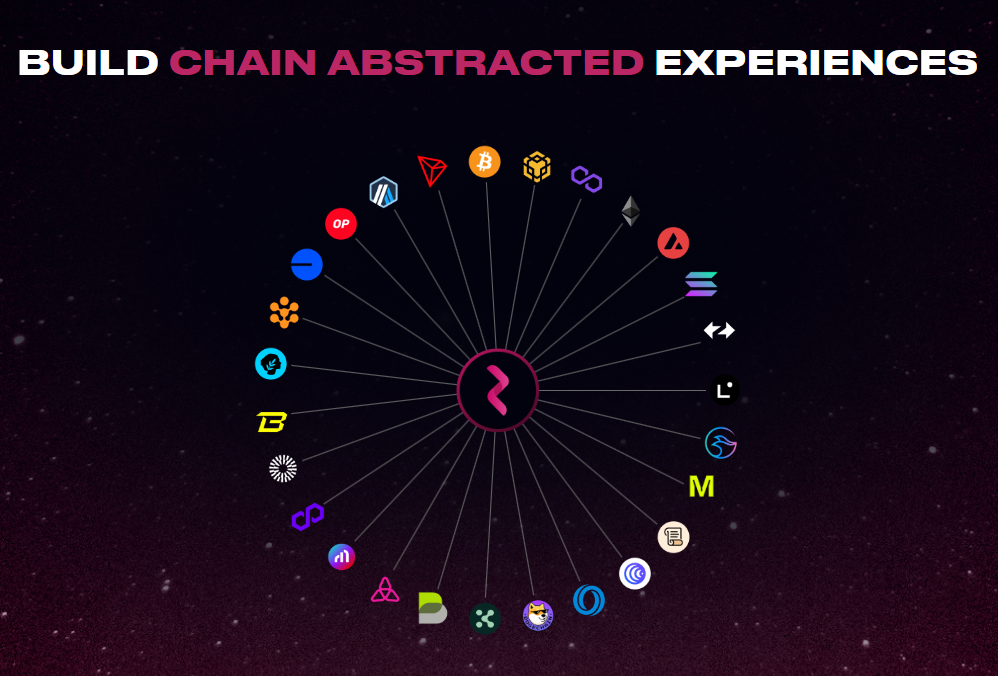In blockchain, one of the biggest headaches has been getting different chains to talk to each other smoothly. It’s like having phones that can only call others of the same brand – not very practical, right? That’s where Router Protocol comes in, and they’re making some serious waves in the crypto space, especially with their recent moves with Solana and Hyperliquid.
Breaking Down Router’s Game-Changing Infrastructure
Router Protocol isn’t just another bridge – it’s a complete cross-chain communication powerhouse. At its core is the Router Chain, a purpose-built Layer 1 solution that’s been quietly revolutionizing how different blockchains interact. Think of it as a universal translator that makes sure everyone’s speaking the same language, whether you’re dealing with Ethereum, Solana, or any other major blockchain.
What makes Router stand out is their Router Nitro bridge. Unlike other bridges that feel like they were built with duct tape and hope, Nitro was designed from the ground up with security and speed in mind. It’s not just about moving assets anymore – it’s about creating a seamless experience that feels like you’re working on a single chain.
The Cross-chain Intent Framework (CCIF) is another ace up Router’s sleeve. This isn’t just some fancy tech term – it’s the secret sauce that lets developers build cross-chain apps without getting lost in the technical weeds. Imagine being able to execute complex transactions across multiple chains as easily as sending an email. That’s what CCIF brings to the table.
Game-Changing Integrations
The recent Solana integration is a big deal, and here’s why: Router Protocol now connects Solana to more than 25 different networks. This isn’t just about moving SOL tokens around – it’s about opening up Solana’s entire DeFi and NFT ecosystem to the wider blockchain world. Developers who were previously limited to building within Solana’s ecosystem can now think bigger and build applications that work across multiple chains.
But the real game-changer might be the Hyperliquid partnership. For those not in the know, Hyperliquid is a powerhouse in the derivatives trading space, with over $2 billion in total value locked. Router Protocol has made it possible for users to make direct deposits from more than 30 different chains. This means traders can jump into Hyperliquid’s markets without the usual hassle of multiple transfers and bridges.
The technical side of these integrations is impressive, but what really matters is what it means for users. Router’s middleware contracts act like smart intermediaries, handling all the complex stuff behind the scenes while presenting a clean, simple interface to users. Whether you’re moving assets between chains or executing complex cross-chain transactions, the experience is smooth and intuitive.
Why Router Protocol is Just Getting Started
Let’s talk about why Router Protocol is seriously undervalued right now. While competitors like Wormhole and LayerZero have grabbed headlines, Router has been quietly building something more comprehensive. Their tech isn’t just about bridging – it’s about creating a complete cross-chain infrastructure that could become the backbone of blockchain interoperability.
Think about it: as Hyperliquid continues its explosive growth, Router Protocol is positioned to be its go-to cross-chain solution provider. With Hyperliquid’s trading volume going through the roof, Router’s role as the primary bridge could lead to massive adoption. This isn’t just speculation – it’s already happening, with daily transaction volumes steadily climbing.
The Path to Market Growth
Currently, Router Protocol’s ROUTE token is flying under the radar, but several factors suggest this won’t last long. First, the protocol’s integration with high-growth platforms like Hyperliquid and Solana puts it at the center of some of crypto’s most active ecosystems. As these platforms grow, Router grows with them.
Second, Router’s positioning as the official bridge for hyperliquid EVM chains is a big deal. This isn’t just another partnership – it’s about becoming the standard for cross-chain operations in some of the most active parts of the crypto market. When you’re the default choice for moving assets between chains, that’s when real value starts to build.
Looking at the Numbers
With the total supply now at 1 billion tokens after the split, Router Protocol has room for significant growth. The current market cap leaves plenty of space for expansion, especially considering the protocol’s technical capabilities and strategic positions. A $2 billion market cap isn’t just possible – it’s realistic given the protocol’s trajectory and the growing demand for cross-chain solutions.
Think about the daily volume of cross-chain transactions across major platforms. As more users and developers need to move assets between chains, Router’s role becomes increasingly crucial. The protocol isn’t just facilitating transactions; it’s becoming an essential part of the blockchain infrastructure.
The Competitive Edge
Router Protocol: Reach your users where they are.
What sets Router apart from other cross-chain solutions? It’s not just about having better technology (though they do). It’s about having a complete ecosystem that works right now. While others are still working on their roadmaps, Router is already:
– Processing millions in cross-chain transactions
– Supporting both EVM and non-EVM chains
– Providing real solutions for real users
– Building partnerships with major platforms
The Road Ahead
The future of blockchain isn’t about isolated chains – it’s about seamless interaction between different networks. Router Protocol isn’t just participating in this future; they’re building it. As more platforms and users realize the need for reliable cross-chain solutions, Router’s value proposition becomes even stronger.
For developers, traders, and users looking for reliable cross-chain solutions, Router Protocol is becoming the obvious choice. It’s not about flashy marketing or big promises – it’s about delivering real utility in the growing cross-chain ecosystem.
The path to $2 billion market cap isn’t just about price speculation – it’s about Router Protocol becoming the essential infrastructure that makes cross-chain operations possible. As blockchain adoption grows and cross-chain activity increases, Router’s position as a key player in this space becomes more valuable.
In the end, Router Protocol isn’t just another project promising the moon – it’s a practical solution to real problems in the blockchain space. And that’s what makes it worth watching in 2025 and beyond.
For more information about Router Protocol and its offerings, visit their official website at www.routerprotocol.com. You can also follow the community on X and Telegram to know all the latest insights. Watch the platform’s YouTube channel to understand its offerings better.
Disclaimer: The cryptocurrency market is highly volatile and risky. Kindly do your own research and risk analysis before making any crypto investments.




